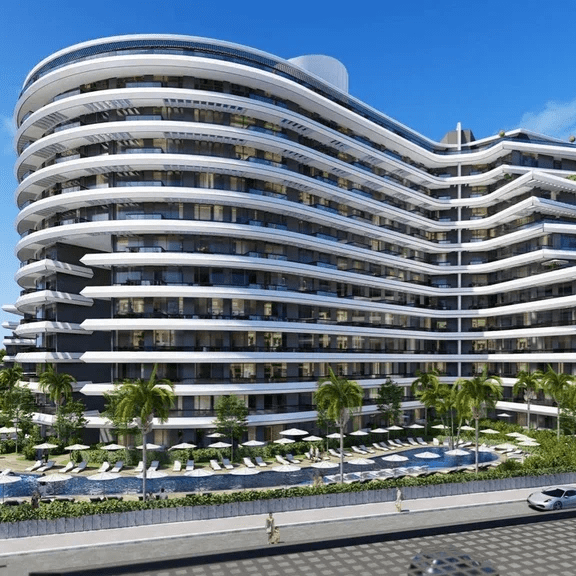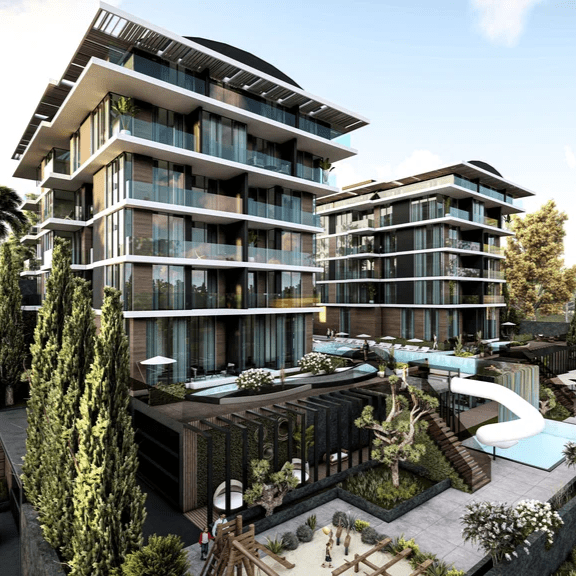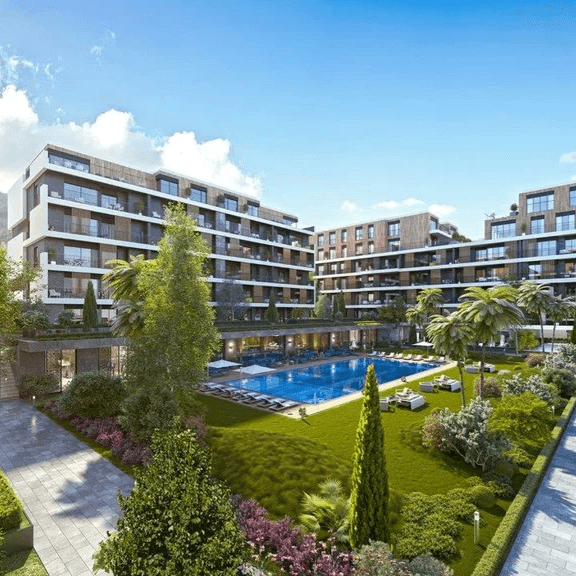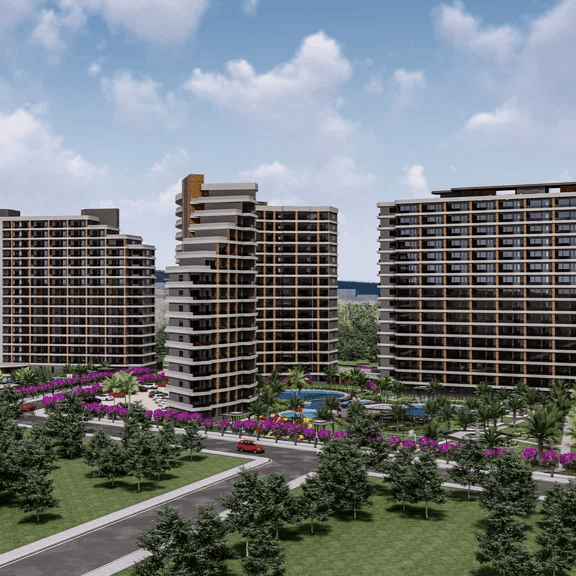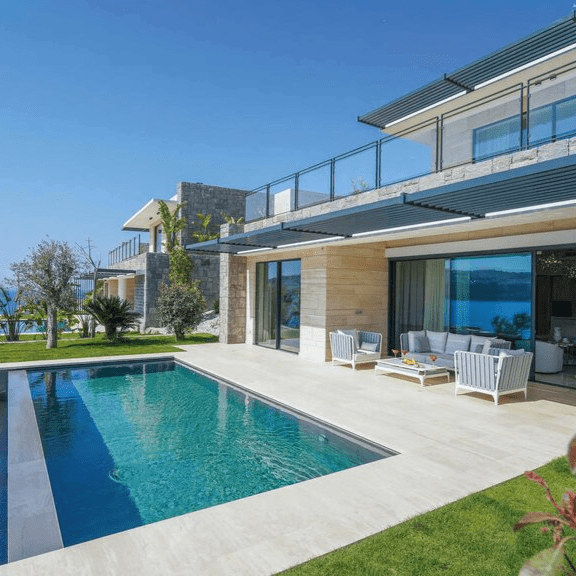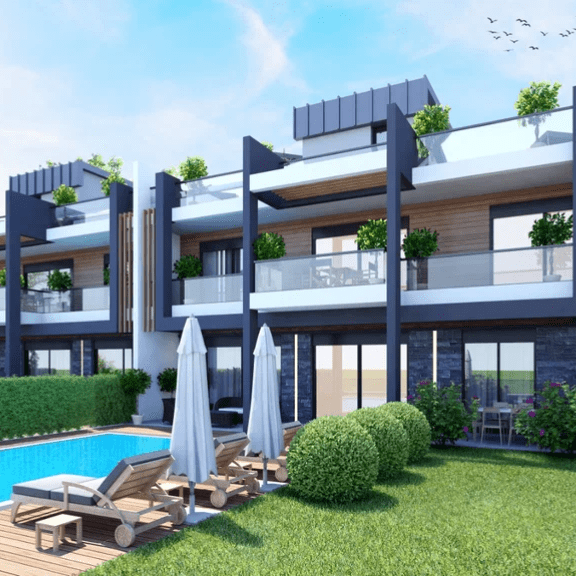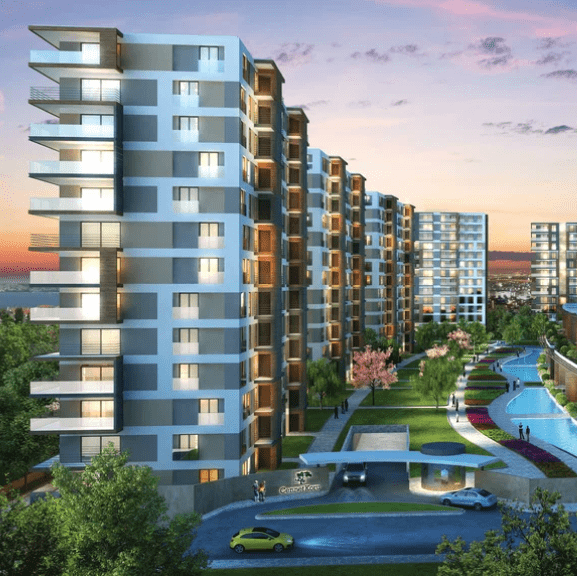For expats with families who have decided to move abroad in search of new opportunities and a better life, finding a place suitable for children is of utmost importance. Turkey stands out as one of the most attractive and promising countries in this regard. In recent years, it has not only become a popular tourist destination but has also drawn the interest of foreigners looking for long-term stays. The country boasts a favourable climate, stunning natural landscapes, a rich cultural heritage, and a deep history. Additionally, expats can enjoy a relatively high quality of life at a reasonable cost..
When choosing a city for relocation, expats consider various factors, including the quality of education in local schools, access to medical services, safety, and the availability of infrastructure for leisure and entertainment. One of Turkey's greatest advantages is its diversity. It is not only easy to find a place that caters to a child's needs and preferences but also to explore different perspectives within the country.
Why Does Turkey Attract Expats with Families?
Nature and a Good Climate. Turkey offers diverse landscapes, including seaside beaches, mountains, lakes, rivers, and even deserts. This rich variety of environments makes the country particularly appealing to nature enthusiasts and outdoor adventurers. You and your children can engage in water sports, skiing, snowboarding, as well as hiking and cycling in the picturesque parks and nature reserves across Turkey.
The climate in Turkey is a significant advantage, and the country provides various climate options to suit different preferences. Inland continental areas experience hot and dry summers, along with snowy and cold winters. In contrast, regions like the Mediterranean, Aegean Sea, and the south coast of the Sea of Marmara offer similar summers but milder winters. The Black Sea coast and the north coast of the Sea of Marmara have cooler and rainy summers, with warm coastal winters and cold mountainous winters.
Cappadocia. Photo: Igor Sporynin (Unsplash)
In general, the average temperature in the country in January is around +5°C, while in July, it reaches approximately +23°C. However, during the summer, the southern coast of Turkey can experience average daily temperatures that occasionally exceed +35°C. Throughout the year, the water temperature ranges from +17°C to +27°C.
Sunny weather with low precipitation is predominant in Turkey. Visitors greatly appreciate its temperate climate, characterised by warm summers and mild winters. The Mediterranean coast is particularly ideal in this regard.
Rich History and Culture. Turkey boasts a rich historical and cultural heritage, offering unique opportunities for the comprehensive education and development of children beyond the classroom. You can explore the remnants of ancient civilizations, cave cities, numerous ancient temples, monasteries, castles, and palaces throughout Turkey. There are also various ways to immerse yourself in local culture and traditions, such as savouring the national cuisine in the streets and restaurants. Many cities host traditional musical and cultural events for residents and visitors alike.
Various Events for Children and Family Recreation. Turkey provides an extensive array of family-friendly events and entertainment options. In nearly every major city, you'll find amusement parks, water parks, children's theatres, museums, and various educational programs. There are plenty of excursions tailored for family vacations as well.
Inexpensive Cost of Living and Well-Developed Infrastructure. The cost of living in Turkey is relatively affordable, encompassing housing, goods, social and welfare services. The country boasts a well-developed transportation infrastructure, and urban areas offer ample public amenities.
The healthcare system in Turkey is at a commendable level. State institutions offer equal access to medical services for both Turkish citizens and foreigners residing in the country.
New buildings in Turkey
Commercial medicine is well-developed in the country. Private clinics and hospitals are generally better equipped, offer a wider range of services, and sometimes specialise in specific areas. Thanks to the high-quality services and affordable prices, Turkey is considered a popular destination for medical tourism. However, in remote areas or places with low population density, the availability and quality of healthcare services may be limited.
The situation in the field of education is not entirely straightforward, although Turkish authorities have been taking measures to improve it in recent years. Public schools are free, but many expats have expressed concerns about the low level of education in these institutions. Fortunately, there are numerous private international schools and kindergartens in Turkey's major cities, following North American and European educational models, and providing a high-quality education. Private schools often offer superior learning conditions and teaching quality, but they can be relatively expensive.
When it comes to higher education, Turkey boasts several prestigious universities offering a diverse range of educational programs.
Geographical Location. Turkey's strategic location at the crossroads of Europe, Asia, and the Middle East, along with its extensive network of sea and land trade routes, positions it as a major transportation hub. This makes Turkey an attractive destination for expats who frequently travel globally.
Hospitality and Varied Cuisine.Turks are renowned for their hospitality and friendliness. The majority of locals are always eager to offer assistance and extend a warm welcome to guests. This creates a welcoming atmosphere for expats, helping them feel like an integral part of the society.
When it comes to food, Turkish cuisine is renowned for its diversity and exotic flavours. Food enthusiasts can indulge in a wide range of dishes made from fresh and natural ingredients, ranging from spicy meat dishes to delectable desserts.
Istanbul. Photo: Ant Rozetsky (Unsplash)
Potential Difficulties of Living in Turkey
Language Barrier. Learning the Turkish language can be challenging, especially for children, which can pose difficulties during their adjustment to a new environment and when interacting with local peers.
Cultural Differences. Turkish culture differs from Western culture, which can sometimes present an obstacle to understanding local traditions and customs. For example, the perceived over-friendliness and persistence of Turks may be viewed by Europeans as a violation of personal boundaries.
Safety. Turkey is considered a relatively safe country for foreigners; however, the crime level varies by region. Popular tourist areas generally have low rates of violent crime, but incidents of pickpocketing and fraud are relatively common.
Earthquakes. Turkey is located in a seismically active region, posing a risk of devastating earthquakes in much of the country. Consequently, residing in older buildings can be unsafe. While seismic regulations for new construction have been reinforced since the start of the 21st century, not all developers consistently adhere to these guidelines.
Job Search and Bureaucratic Obstacles. The labour market in Turkey may not be favourable for foreigners, particularly if they do not speak Turkish. However, there is a significant demand for foreign specialists in sectors such as tourism, the hotel industry, language instruction, and international business. Furthermore, there are appealing opportunities for highly skilled foreign professionals with work experience in international firms or possessing specialised skills.
Turkish employers are required to obtain the necessary permits to hire foreigners, which can sometimes lead to challenges and delays. A similar situation may arise when applying for a residence permit in the country.
Antalya. Photo: Evgeny Matveev (Unsplash)
The Best Cities in Turkey for Expats with Families
Istanbul
Istanbul, Turkey's largest city and economic hub, boasts a modern and well-developed infrastructure, providing ample opportunities and a high standard of living. The city offers numerous kindergartens and over 50 international schools, including several world-class institutions such as Gokkusagi Schools, Brights International School of Istanbul, Istanbul International School, and Istanbul International Community School. Additionally, Istanbul is home to 13 state universities, including the prestigious Bosphorus University, as well as 44 private universities, many of which offer instruction in English across various disciplines.
Photo: Krisztián Korhetz (Unsplash)
Istanbul boasts approximately 220 hospitals, comprising 142 private hospitals, 17 university-affiliated hospitals, and 62 public hospitals. Additionally, the city is home to specialised medical centres equipped with modern facilities and technology.
There is a well-developed public transport network here: metro, buses, and ferries. It makes moving around the city convenient and accessible for families with children.
Istanbul boasts numerous museums, historical landmarks, and tourist attractions, along with a diverse range of theatres, cinemas, entertainment venues, and theme parks, such as Rahmi M. Koç Müzesi, Miniatürk, Vialand, KidZania, and more. Additionally, the city offers a plethora of playgrounds and activities that cater to the interests of both children and adults.
The city is enveloped by the waters of the Bosphorus, the Marmara Sea, and the Black Sea, providing numerous parks and green spaces for people of all ages to engage in sports, partake in outdoor games, and enjoy leisurely walks.
Istanbul is regarded as one of the safest cities in the region, with authorities making significant efforts to continually reduce the crime rate.
Large real estate projects are under development in the city, including modern residential complexes. According to the Global Property Guide, the average prices for two-bedroom flats in the most popular areas of Istanbul vary from $57,000 to $403,400, with rental prices ranging from $345 to $1,329 per month. Three-bedroom flats are priced between $79,700 and $598,000, with rental rates ranging from $505 to $2,126.
Ankara
The capital of Turkey, Ankara, is an appealing destination for expatriates with families for several reasons. Firstly, Ankara provides access to high-quality education, with prestigious public and private schools offering diverse curricula and a wide range of subjects. Educational institutions in Ankara excel in academic training and offer opportunities for skill development in arts, sports, and sciences. Additionally, Ankara is home to several renowned international schools, including Oasis, Bilkent Laboratory & International School, and TED Ankara College, as well as the esteemed Hacettepe State University.
Photo: ekrem (Pixabay)
Secondly, well-organised neighbourhoods in the city offer a secure and tranquil setting for raising children. Ankara boasts a low crime rate and is notably quieter than Istanbul. The well-established infrastructure, featuring parks, playgrounds, and sports facilities, fosters an ideal environment for children to lead an active lifestyle.
The third advantage of Ankara for expats with families is its thriving international community. Ankara serves as the political hub of the country, housing numerous government offices, embassies, and consulates. This concentration of foreign diplomats, businessmen, and specialists creates opportunities for employment, family-oriented social interactions, and knowledge exchange. International schools and clubs in the city also provide a wide range of activities and programs for expat families, facilitating their integration into the local culture and social scene.
Ankara offers an affordable cost of living and reasonable housing prices. On average, a two-bedroom flat in the city's most popular neighbourhoods ranges from $38,400 to $94,300 in terms of purchase price. For rental properties of this size, monthly rates can be found between $140 and $452. Three-bedroom flats typically cost between $53,100 and $111,600 for purchase, with monthly rental prices ranging from $213 to $452.
Trabzon
Trabzon, located on the Black Sea coast in the northeastern region of Turkey, is renowned for its stunning natural landscapes, including beautiful beaches and lush greenery. It's an ancient yet relatively small and safe city with well-developed infrastructure, offering a comprehensive range of services essential for a comfortable family life. Trabzon boasts modern medical facilities and educational institutions, including a variety of private schools, though the options for international schools are limited. The city is equipped with numerous sports complexes, playgrounds, a zoo, and a water park to cater to the recreational needs of families. The presence of an international airport further facilitates convenient travel.
Photo: damoon katooei (Unsplash)
Another advantage of Trabzon is its rich history and cultural heritage. There are many architectural sights and museums in the city.
In recent years, Trabzon has experienced a surge in tourist arrivals, accompanied by a growing interest from individuals looking to settle in the city. This trend has both positive and negative implications. On one hand, it has stimulated the city's development, prompting new construction projects and diversifying the local infrastructure. On the other hand, it has led to the loss of the once tranquil provincial atmosphere and an upward trend in real estate prices.
Trabzon offers competitive real estate prices, with numerous new residential complexes boasting modern designs and scenic sea views.
The cost of two-bedroom flats in new residential complexes in Trabzon ranges from $66,000 to $203,500, while three-bedroom flats are priced between $80,300 and $265,100.
In 2023, the average cost of a spacious flat in the city centre is approximately $111,300, while a spacious flat in the uptown area costs around $67,300. If you are looking to rent a three-bedroom flat in the city centre, the average price is $170, whereas in the uptown area, it will cost you about $140.
Antalya
One of the most popular resorts in Turkey is situated on the Mediterranean coast, renowned for its delightful climate (with over 300 sunny days annually), pristine beaches, crystal-clear waters, natural parks, and an array of entertainment options for children, including waterparks, a dolphinarium, a zoo, and amusement parks. Additionally, the city boasts numerous clubs where children can engage in sports or creative activities, along with a plethora of cultural and historical attractions.
Photo: Erik Karits (Unsplash)
Antalya boasts a well-established infrastructure, featuring state-of-the-art medical facilities and excellent international schools such as Antalya Toplum College, TED Antalya College, ISTEK School, and Antalya International School. The city is equipped with international airports, facilitating numerous direct flights from various countries.
The cost of living in Antalya is cheaper than, for instance, in Istanbul. The real estate market of this city offers a wide choice of modern complexes that are popular among investors.
The average price for two-bedroom flats in the most sought-after areas of Antalya ranges from $85,000 to $186,000, while the monthly rental costs for such flats range from $319 to $1,010. Three-bedroom flats are priced between $116,900 and $265,800, with rental rates varying from $452 to $1,090 per month.
Bursa
Bursa, Turkey's fourth-largest city, is situated in the northwest of the country, relatively close to Istanbul. Known for its stunning natural landscapes, including lakes, forests, and waterfalls, Bursa is considered one of Turkey's most beautiful cities. It also boasts a rich cultural and historical heritage, with attractions like the ski resorts on Mount Uludag, the Green Mosque, the Green Mausoleum, the Bursa Archaeological Museum, the Ulu-Jami Mosque, and one of the world's longest cable railways, the Bursa Teleferik.
Photo: Hile19
The well-developed infrastructure in the city provides easy access to basic services. There is a large choice of high-quality educational and medical facilities, sports centres, museums, and family amusement centres in Bursa.
Places of entertainment and activities for children include aquaparks, zoos, Lunapark and Wonderland Eurasia theme amusement parks.
Educational institutions are presented by Bursa SEV and Bursa Nilufer international schools, TED college, Emine Örnek private school, Cakir Schools, Özel Egeberk Anaokulu.
The city offers a variety of housing options and family-friendly neighbourhoods. The average cost of a two-bedroom flat in Bursa is around $61,700, with a monthly rental rate of $286. Three-bedroom flats have an average price of $101,000, with a rental rate of approximately $400 per month.
Izmir
The third-largest city in Turkey, located on the Aegean coast, is a spacious and serene urban centre blessed with an excellent climate. Izmir offers abundant opportunities for active recreation and boasts a well-developed infrastructure, including numerous schools, kindergartens, medical clinics, an efficient transport system, and a wide range of entertainment options.
Photo: Ben Kerckx (Pixabay)
Furthermore, Izmir serves as a cultural hub, hosting a variety of festivals and national as well as international events. The city maintains a low crime rate, contributing to a serene and secure environment for families.
Entertainment and activities for children in Izmir encompass attractions such as the Coskun Lunapark amusement park, numerous waterparks, the Izmir Wild Life Park zoo, Kent Forest park, and the Umran Baradan Oyuncak Muzesi children's museum.
Educational institutions in Izmir include Izmir SEV Elementary School, Isikkent Anadolu Lisesi, American Collegiate Institute, and MEF International School.
The average price for two-bedroom flats in the most popular areas of Izmir ranges from $74,400 to $121,700, with rental costs for such flats ranging from $319 to $558 per month. Three-bedroom flats have prices ranging from $95,700 to $159,500, with rental rates varying from $372 to $625.
Bodrum
Bodrum is a resort city located on the coast of the Aegean Sea, renowned for its popularity among tourists and expat families. It offers numerous entertainment facilities, children's services, high-quality restaurants, and scenic areas for leisurely strolls. The city features many beaches with shallow waters, ensuring safe swimming for kids. Additionally, Bodrum boasts international schools like the Bodrum Private Marmara Primary School & College, sports clubs, restaurants, children's playgrounds, and water parks. Children have opportunities to engage in water sports, attend various workshops, and participate in cultural events.
Photo: Igor Pyrig (Unsplash)
The average renting price for flats with two bedrooms in the city is $407 to $17,400 per month, the price for flats with three bedrooms varies from $480 to $24,200 per month. Two-bedroom flats cost from $68,500 to $1,200,000, three-bedroom flats from $83,300 to $1,900,000.
Adana
Adana serves as the administrative centre of the district by the same name in southern Turkey. Positioned just 50 kilometres from the Mediterranean Sea, the city provides a vibrant lifestyle and excellent educational opportunities for expat families, with institutions such as Adana Gundogdu College and Adana American School operating in the area.
The average price for two-bedroom flats in the most sought-after areas of Adana ranges from $52,200 to $78,600, with rental costs for such flats spanning from $226 to $400 per month. For three-bedroom flats, the prices range between $65,900 and $103,600, while rentals can be found at rates ranging from $242 to $558.
Photo: macit888 (Pixabay)
Mersin
Located on the Mediterranean coast, Mersin offers a serene lifestyle and stunning natural beauty. Sandy beaches, parks, and recreational areas provide ample opportunities for outdoor activities.
Photo: Mersin Page
There are good educational institutions in the city, for instance, Mersin SEV Elementary School and Mersin American College.
The average cost of a spacious flat in the city centre in 2023 is approximately $316,100, while a spacious flat in the uptown area costs around $247,200. Renting a three-bedroom flat in the downtown area averages about $375, while in the uptown area, it will cost you approximately $263.
Konya and Kayseri
For those who don't prioritise proximity to the sea, two other cities in the central part of Turkey are worth considering. Both cities are situated in Cappadocia, a remarkable natural region renowned for its rock formations and rock-cut towns. Göreme National Park and the Rock Sites of Cappadocia are listed as UNESCO World Heritage Sites.
Photo: ORHAN BADUR (Pexels)
Konya, situated in central Anatolia, is a city steeped in history and religious importance. Konya's family-friendly neighbourhoods, parks, and recreational areas make it an appealing destination for expats with families. The city is home to various educational institutions, including the international Konya SEV Elementary School and Konya TED College.
The average price for two-bedroom flats in Konya is approximately $53,200, with an average monthly rental cost of $239. Three-bedroom flats in the city typically have an average price of $77,100, with a rental rate averaging $266 per month.
Kayseri, located in the central part of Turkey, is well-known for its industrial and educational institutions. The well-tended parks, sports complexes, and shopping malls offer ample opportunities for family recreation. Additionally, there are international schools in Kayseri, such as Kayseri SEV Elementary School and Kayseri Final Okullari. The affordable cost of living in the city is an additional advantage for foreigners with families.
The average price for two-bedroom flats in Kayseri is approximately $41,200, with an average monthly rental cost of $247. Three-bedroom flats in the city typically have an average price of $61,100, with a rental rate averaging $213 per month.
Photo: tahirboztepe
In a Nutshell
Turkey offers expats with families a range of options for settling down with a decent quality of life and the necessary infrastructure for children. Each city has its own unique features. Istanbul and Ankara are more suitable for those who prefer living in metropolises and are interested in a diverse job market. Antalya and Trabzon are better suited for those who love beach holidays and natural surroundings. The cost of real estate varies from city to city, but overall, you can usually find housing at a reasonable price in Turkey. Ultimately, the choice of a particular location depends on the family's needs, preferences, and financial capabilities. Visitors are guaranteed a good climate, beautiful nature, and a unique blend of culture and history.
Cover photo: Hulki Okan Tabak (Unsplash)
